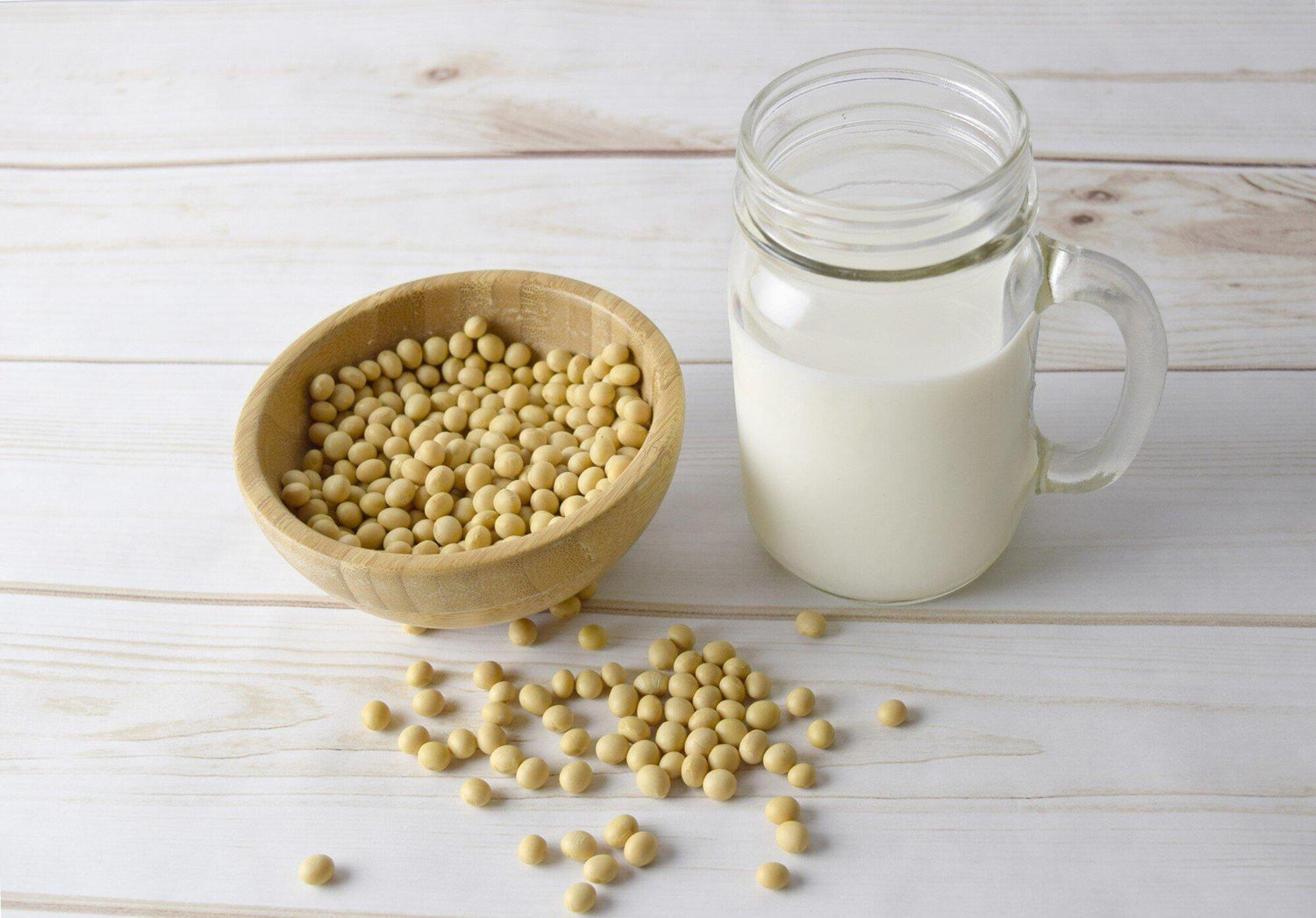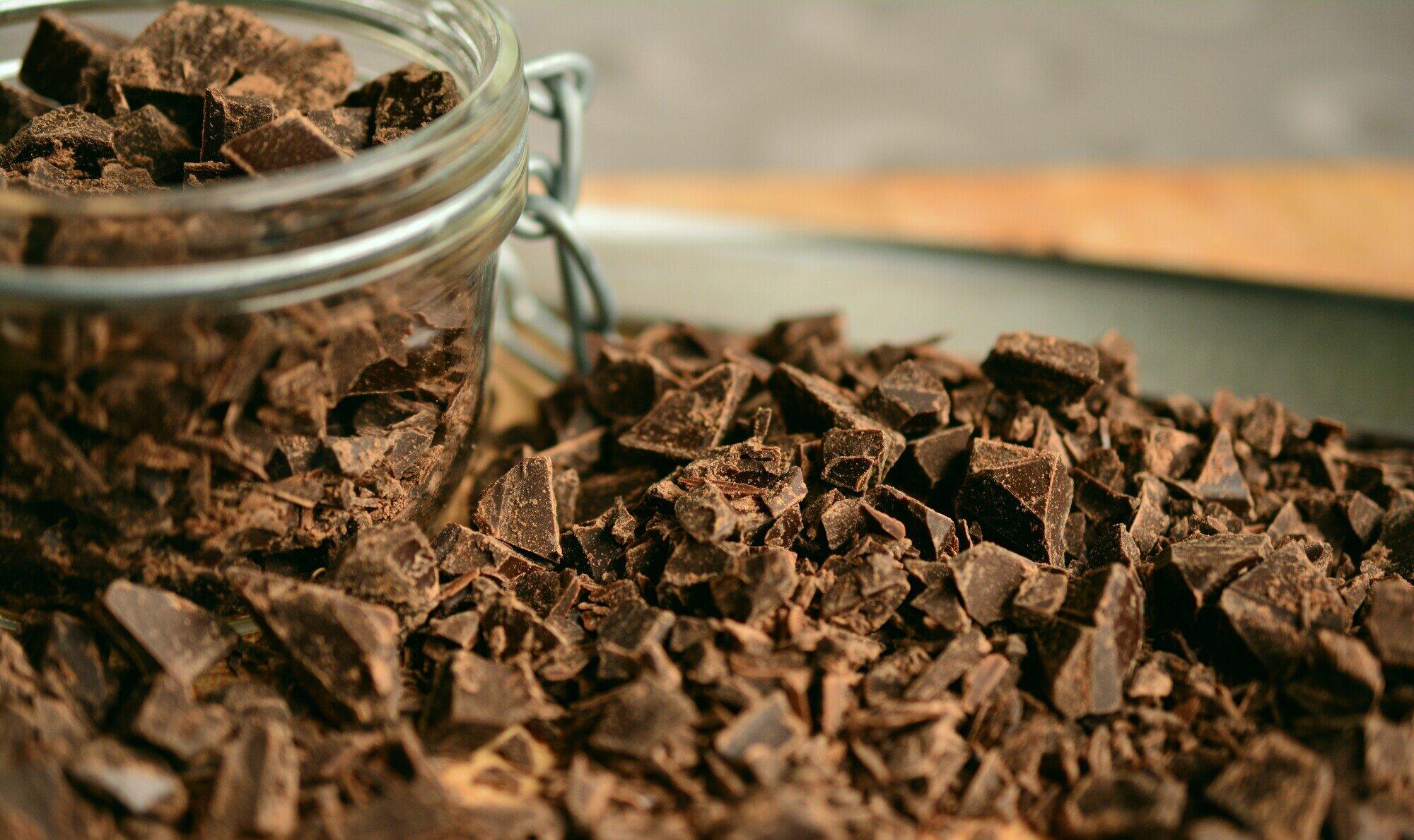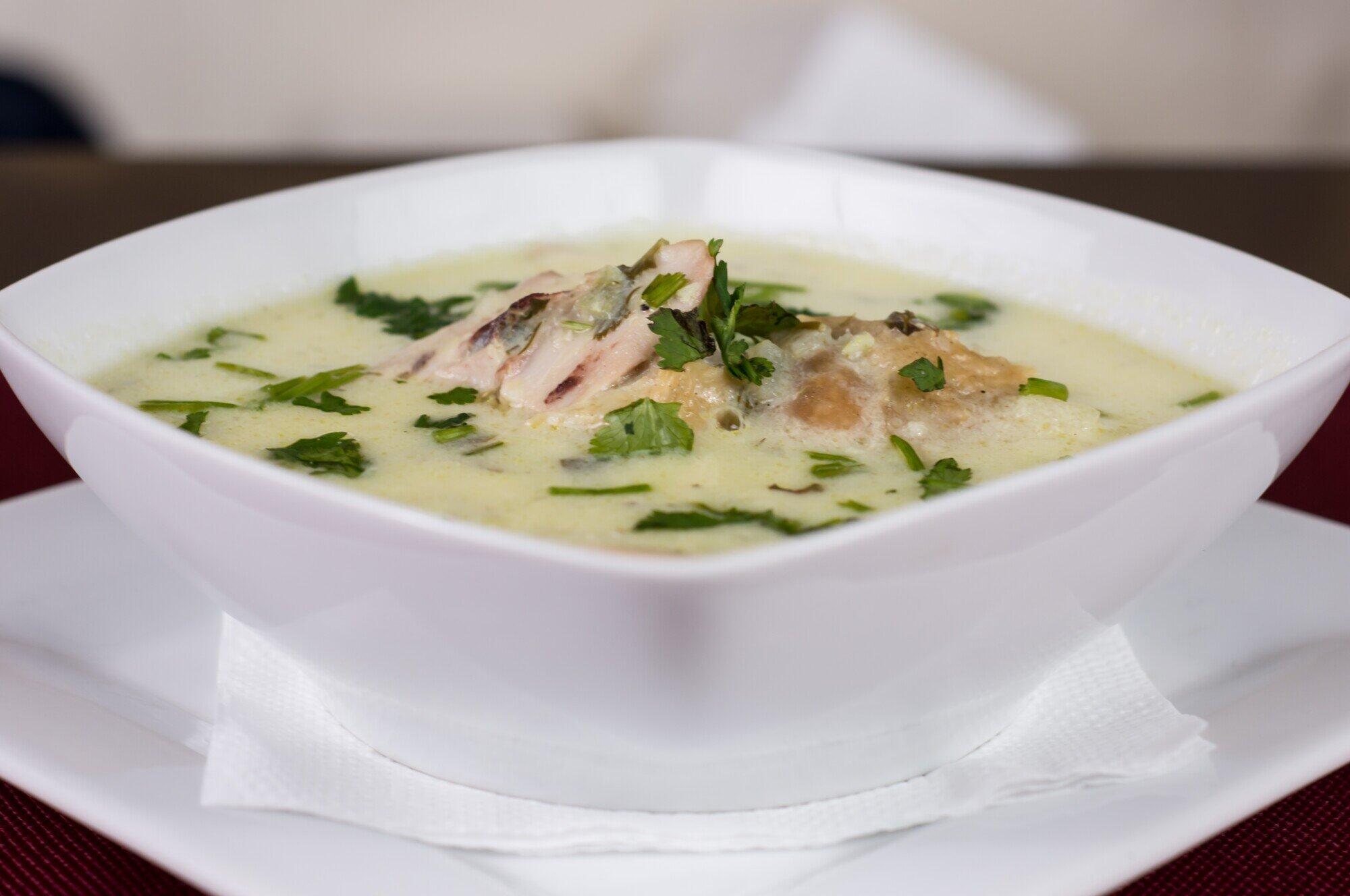Swearing off milk and dairy products is easier than ever with the help of healthy alternatives. Even better, many of these alternatives are rich sources of protein, ideal for healthy, mindful-based eating.
Soy is one of the first examples on the list. Just one cup of boiled soybeans contains over 30 grams of protein! It also comes in various forms, from delicious edamame beans to tofu.
Soy milk is one of the most popular non-dairy protein options and may be enjoyed on cereal, in smoothies, or on its own as a cool glass of milk. In this guide, Discover the benefits of plant-based protein sources like soy, almond, coconut, and more.
The Best Protein For Vegans? More Facts About Soy
Since soy can be prepared in so many ways, it's one of the most popular forms of protein for vegetarians, vegans, and people switching to healthier lifestyles. Soy milk is often the first go-to for anyone switching from dairy milk to a plant-based alternative. Soy milk is available as a refrigerated milk, shelf-stable carton, and powder form.
Next to soy milk, tofu is the most recognized form of soy protein. You'll find this protein in many Asian dishes like traditional stir fry, pho soup, and even battered and fried as tempura. You may also air fry and bake tofu as a healthier alternative.
Tofu may be enjoyed savory or sweet. Curry is another popular way to enjoy soy protein; plus, curry is packed with natural herbs and spices. It may also be enjoyed as a dessert, including the popular Chinese dessert, Douhua.
Tofu comes in five different textures:
- Silk (or silken) texture
- Regular texture
- Firm tofu
- Extra firm
- Super-firm tofu texture
Another recognizable form of tofu is Miso. This alternative is typically enjoyed as a soup. It's made from fermented soybeans and transformed into a paste, traditionally cooked down in saltwater before turning into Miso paste.
If you're looking for an alternative to granola bars and crackers, you may want to consider high-fiber, protein-rich tempeh. This savory cake is made from fermented soybeans and has a signature grainy, nutty texture. You can enjoy this alternative with high-protein, non-dairy spreads like almond butter.
Tempeh pairs well with soy-based yogurts for a high-protein yet non-dairy breakfast. Soy yogurt may be mixed with a variety of antioxidant-rich fruits and nuts like blueberries, almonds, coconut flakes, and pure maple syrup for taste. You can also use it as a wet ingredient alternative for high-protein cakes and muffins.
Add a cup of soy yogurt to your next breakfast smoothie instead of milk. You can also make loaded smoothie bowls with soy yogurt or freeze it into delicious frozen yogurt or dessert pops.
Edamame is another popular type of soy protein. These are boiled immature (young) soybeans. They're often enjoyed on their own with light sea salt or seasoning; they also taste delicious in a "green goddess" salad.
More Non-Animal Protein Sources Like Almond
If you've heard about non-dairy soy alternatives, you've likely heard about almond-based protein sources. Almonds, like most nuts, are some of the richest sources of protein. Data from Harvard University found that one ounce of almonds is equal to six grams of protein.
Similar to soy protein, almond milk is also available as a non-dairy alternative to milk. You can really taste the almond and it pairs wonderfully with cold breakfast cereal, oatmeal, and morning cups of coffee. Traditional dairy milk may also be swapped out for an almond milk alternative in any baking recipe that calls for milk.
Almond is frequently enjoyed in breakfast and lunch smoothies and pairs well with chocolate, banana, and peanut butter. These ingredients are also rich sources of antioxidants and protein which gives any smoothie a healthy boost of vitamins and minerals.
Like soy yogurt, you can also find almond-based yogurts. Enjoy them as parfaits with your favorite fruit and granola. It's also delicious plain or with pure maple syrup. It also functions as a wet ingredient for non-dairy cakes and bakes.
For an extra almond boost, swap out your traditional flour for almond-based flour. This substitute is perfect for high-protein desserts, snack bars, and all-natural energy bars. Soy-based flours are available, as well as chickpea flour.
So many non-dairy meals and snacks contain almonds, including granola bars, crackers, breads, cereals, and noodle dishes. You can also use it as a crust for baking or frying tofu.
Coconut and More Plant-Based Protein Sources
Coconut is the next non-dairy milk you'll find in the refrigerated section. It's also available in shelf-stable milk cartons and powdered form. Coconut milk has a naturally lightly sweetened taste from its natural coconut source, making it a perfect addition to cold cereals, breakfast smoothies, and frozen desserts.
Coconut-based "ice cream" is one of the most popular non-dairy alternatives to ice cream. Its natural flavor goes perfectly with chocolate, vanilla, banana, strawberry, and more popular dessert flavors. You can also blend it into a delicious non-dairy "milkshake" or soft-serve treat.
Like soy and almond, coconut-based yogurts are also available as an alternative to traditional dairy yogurt. You're in for a real treat when you whip up a yogurt parfait with coconut yogurt. It tastes great with granola, fruit, pure maple syrup, and almond slivers.
Breakfast smoothies made from coconut milk are an excellent alternative to dairy milk. They're also easier on the stomach as they don't contain lactose. Its natural flavor is the perfect fit for fruit-based smoothies and smoothies made with chocolate and peanut butter.
Coconut is known for its fiber content but it also is a good source of protein. Like soy and almond milk, coconut milk is also fortified with more protein and vitamin D minerals. Fortified plant-based milk is packed with more nutrients than traditional dairy milk.
The Growing Popularity of Oak Milk
Oak milk is the new kid on the non-dairy milk block but has quickly risen in popularity for its rich consistency and taste. Oat milk may be enjoyed as refrigerated milk or as a shelf-stable alternative. It's become a new favorite at coffee shops as a non-dairy alternative to milk and creamer.
Oat milk-based "ice cream" desserts are also starting to pop up. You can also make homemade non-dairy yogurt from oat milk. It's especially delicious in morning smoothies and after-dinner non-diary shakes. You can add antioxidant-rich dark chocolate to create delicious chocolate oat milk.
Like coconut milk, oat milk is packed with fiber. It's also fortified with all essential vitamins and minerals, including plant-based protein. Enjoy it with your favorite cold or hot cereal; you can also use it to create delicious puddings and pie fillings for dessert.
Plant-based proteins may also be blended to create more non-dairy milk options. For example, oat, coconut, and soy proteins blend wonderfully to create a rich, creamy plant-based milk. You can also find plant-based alternatives to heavy creams and coffee creams for a richer taste.
Cashew-Based Vegan Protein Alternatives
Another non-dairy alternative that doesn't get enough attention is cashew. This delicious, smooth, and creamy nut is packed with essential proteins. It's also available as a fortified plant-based milk.
Many people compare (and prefer) cashews to peanuts, making it a popular alternative for protein-packed dessert ideas. Cashews taste delicious in 7-layer protein dessert bars, cookies, cakes, and muffins. Chopped cashews are a yummy topping to any non-dairy ice cream made from coconut or soy.
Include chopped cashews in your non-dairy yogurt parfaits and smoothie bowls. It's also available as an alternative to peanut butter, making it a yummy alternative to chocolate and peanut butter non-dairy shakes. Spread cashew nut butter on any protein-rich cracker or muffin for a delicious high-protein breakfast or snack.
More Non-Dairy Protein Options to Consider
Rice is another plant-based protein alternative. Rice milk is especially popular as an alternative to traditional dairy milk and may be used to create fortified puddings and yogurts for breakfast. Rice milk tastes great with any cold cereal or oatmeal; it can also be enjoyed on its own as a simple, cool glass of milk.
Rice milk is one of the most popular lactose-free protein options for ingredient substitutes. Rice-based yogurt works great as a wet ingredient for fiber and protein-rich desserts like dense antioxidant chocolate bars. You can also blend it with fresh or frozen fruit for a crisp and delicious smoothie or shake.
Rice milk "ice cream" is a popular alternative to traditional dairy ice cream. The rice flavor pairs well with a range of dessert flavors like chocolate, vanilla, strawberry, matcha, and more.
Explore the Best Of Non-Diary Protein
Now is the best time to start incorporating non-dairy protein options into your diet. Start by replacing traditional dairy milk with a popular alternative like soy, almond, or oat. Next, add more non-dairy foods like plant-based yogurts.
Diet On Sale is packed with leading brands dedicated to providing protein-rich foods filled with essential vitamins and minerals. Browse our shakes, desserts, breakfast options, and meals to discover more non-dairy alternatives for your mindful eating routine.
Browse our selection of medical-grade weight loss products, and follow us to stay informed.




Leave a comment
This site is protected by hCaptcha and the hCaptcha Privacy Policy and Terms of Service apply.